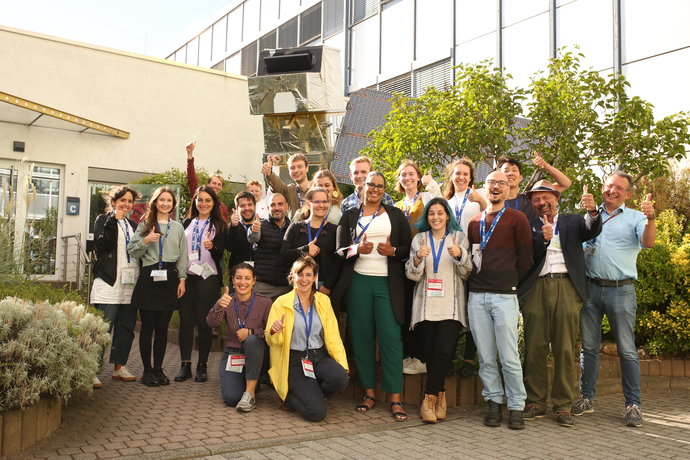
It is a high-quality training offer for young international scientists and has already attracted large attention from the international community: Currently 19 young researchers from ten countries come together during the “ESA-FAIR Radiation Summer School 2022” to work intensively on the topic of cosmic radiation. After two years of video school, the event is back in presence in Darmstadt. The Summer School for radiation research was jointly established by...
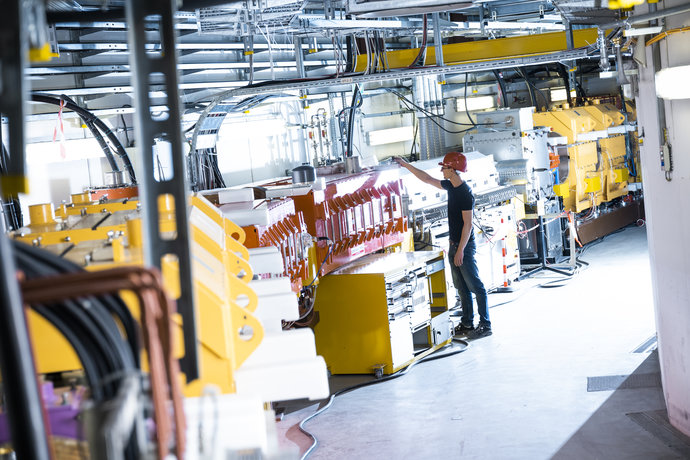
The ring accelerator SIS18 on campus at GSI/FAIR has been doing powerful work in accelerating ions for years. It is currently being upgraded for the central task it will undertake for the future FAIR accelerator center: It will serve as the injector for the large FAIR ring accelerator SIS100, the heart of the FAIR facility currently under construction at GSI. For the first time, booster operation has now been realized at SIS18, achieving the high repetition rate that will be needed in the future…
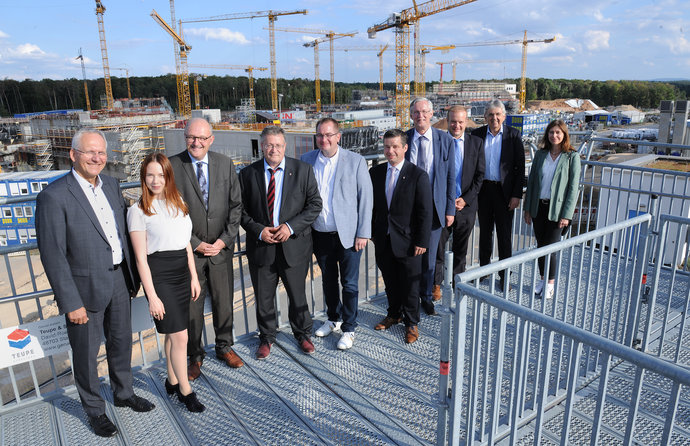
The working group for science and the arts of the CDU parliamentary group in the Hessian state parliament recently visited GSI/FAIR in the course of their summer trip. The four members of the state parliament Dr. Ralf-Norbert Bartelt, Andreas Hofmeister, Michael Reul und Frank Steinraths were accompanied by member of the Bundestag Dr. Michael Meister as well as Natalie Krause, State Chairwoman of the Association of Christian Democratic Students in Hesse. The guests were welcomed by Jörg…
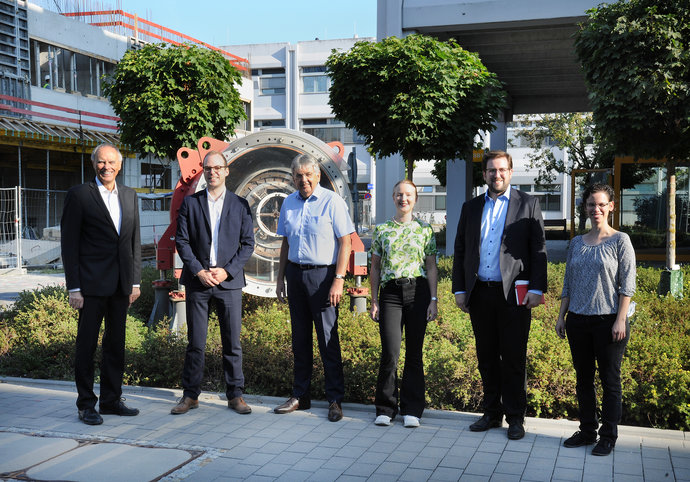
Darmstadt’s City Councilor Holger Klötzner, Department Head for Digitization and Schools, was a guest at GSI/FAIR for a visit accompanied by his assistant Dominik Pollozek. They were welcomed by Professor Paolo Giubellino, Scientific Managing Director of GSI and FAIR, and Dr. Ulrich Breuer, Administrative Managing Director of GSI and FAIR, as well as Carola Pomplun of the Public Relations department and Dr. Kathrin Göbel of the Outreach Office. During an introduction Holger Klötzner was informed…
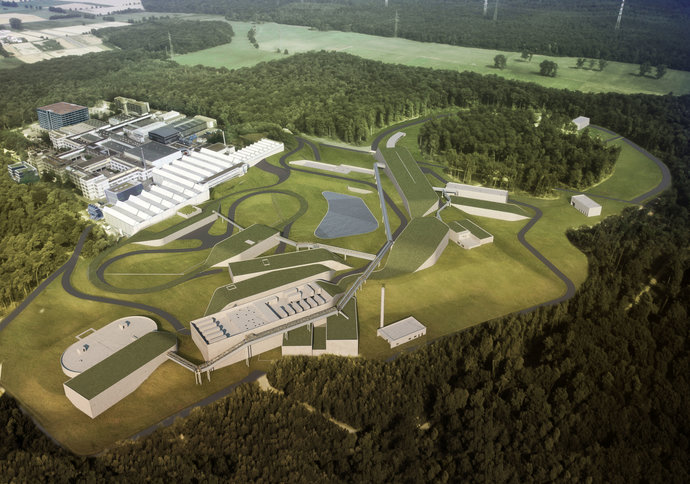
The tumor therapy with charged particles is one of the most promising applications in the fight against cancer. At the existing research facility of the GSI Helmholtzzentrum für Schwerionenforschung, as well as with the FAIR accelerator facility currently under construction here, scientists are working to improve the method through new technologies and treatment procedures and make it even more effective. Thereby, the new FLASH method is a promising way. An important step has now been…
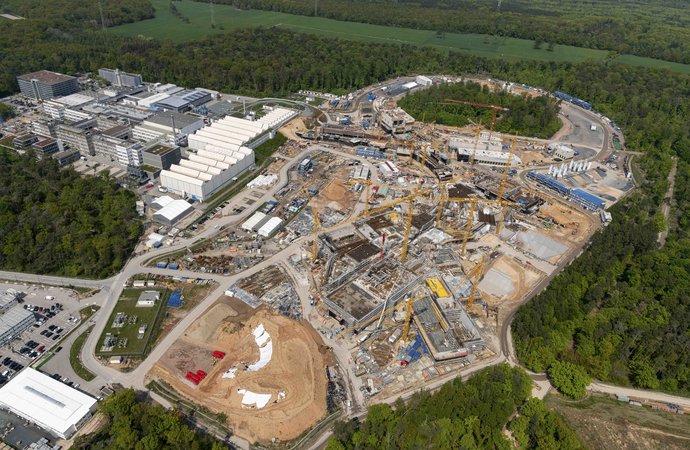
In the second half of 2022, the lecture series „Wissenschaft für Alle“ of GSI and FAIR will be continued as a hybrid format. Interested parties can either attend the event in the lecture hall of GSI/FAIR following a registration or dial into the broadcast of the event via video conference using an internet-enabled device such as a laptop, cell phone or tablet. The program will begin on Wednesday, September 14, 2022, with a presentation by Jörg Blaurock, the Technical Managing Director of…
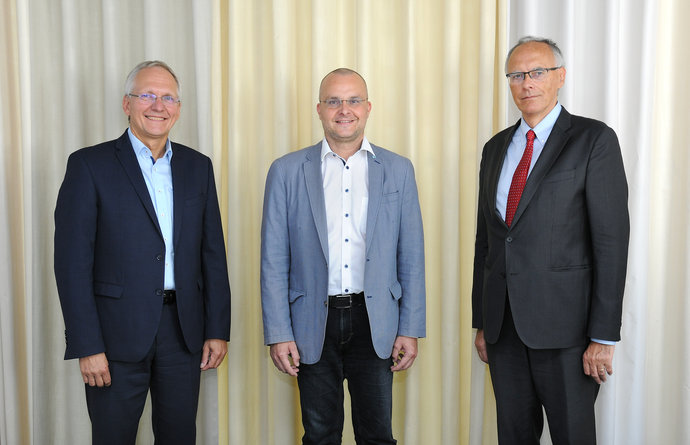
An overview of the latest developments at GSI/FAIR and the scientific activities on campus were central topics during the visit of Marcus Bühl, a member of the Bundestag. The politician comes from Illmenau and belongs to the AfD party. He is member of the budget committee of the Bundestag and deputy member of the committee on internal affairs and community. He was received by Prof. Dr. Paolo Giubellino, Scientific Managing Director of GSI and FAIR, and Jörg Blaurock, Technical Managing Director…
![[Translate to English:] [Translate to English:]](/fileadmin/_processed_/f/f/csm_Wissenschaftsstadt_2a5dec7e99.jpg)
The city of Darmstadt is celebrating a special anniversary this year: since August 1997, it has held the honorary title City of Science - the first in Germany at the time. For the anniversary year, the science city of Darmstadt launched the campaign "Brought to the point: places of knowledge in Darmstadt". All scientific institutions in Darmstadt can participate with their own events and activities. The GSI Helmholtzzentrum für Schwerionenforschung and the international accelerator center FAIR,…
An international research team with participation by the GSI Helmholtzzentrum für Schwerionenforschung succeeded for the first time to create an isolated four-neutron system with low relative energy in a volume corresponding to that of an atomic nucleus. The scientists have overcome the experimental challenge by employing a new method.












